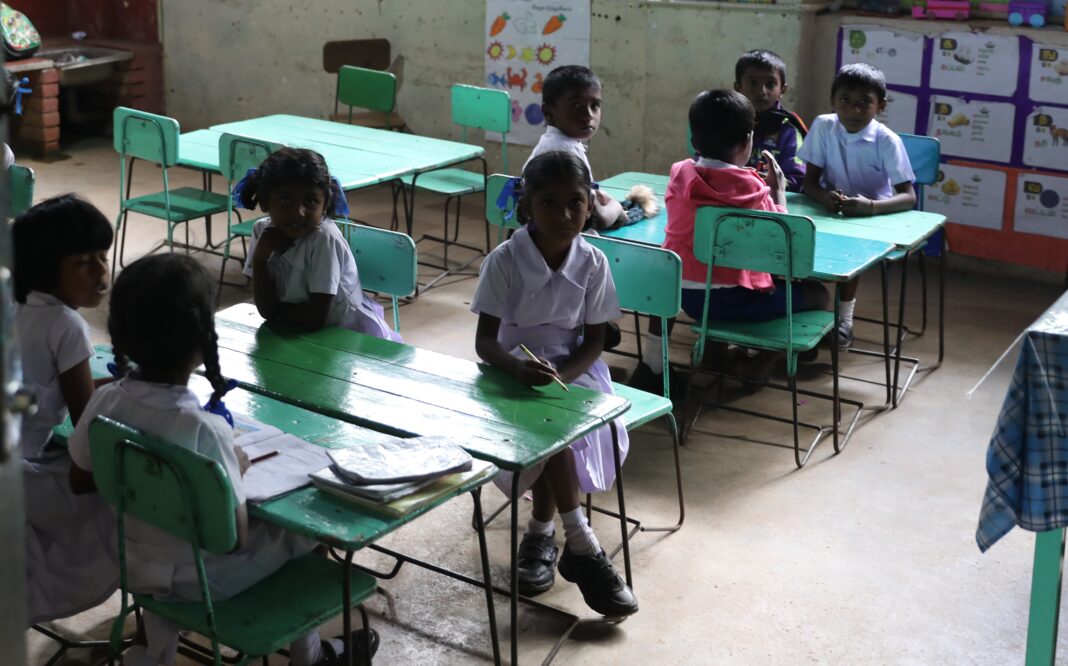An overwhelming majority of the school-going population in Sri Lanka benefits from the State-funded education system. While there are about 300 international schools and 110 private schools, there are a staggering number of 10,135 State-funded schools, which provide education free of charge for 4.1 million children in this country.
Due to the Covid-19 pandemic which led to the closure of schools for an extended period, from early 2020 onwards, many State schools, particularly those in the rural regions, struggled to compete with the private and international schools when providing education online, causing massive delays in covering the syllabuses.
On the other hand, the trade union action taken by teachers during this period exacerbated the issue, effectively pushing back the crucial national-level examinations, such as the Grade 5 Scholarship Examination, and G.C.E. Ordinary Level and Advanced Level Examinations, by a number of months.
All these delays have now snowballed into delaying university intakes, admission to various vocational training institutes, and Sri Lankan students missing enrolments to foreign universities.
Sri Lankan students already lag behind world standards when it comes to age at completing school education. While, in many parts of the world, a student completes their high school education by the age of 16 or 17, Sri Lankan students complete their education at the age of 18 or 19.
However, the delays that took place over the last three years have further extended this period, which in effect has delayed the entry into and completion of tertiary education and their eventual entry into the workforce.
Unfortunately, despite the efforts of the education authorities to bridge the time gap and to hold these crucial national examinations on time, certain parties seem to be engaged in a concerted effort to throw a spanner into such efforts.
The G.C.E. Advanced Level Examination 2023, which should have been held in August this year, according to the pre-Covid schedule, was initially planned to be held in October this year. However, due to the delay in marking the answer scripts of the 2022 G.C.E. A/L Examination, which delays the release of results by several months, the examination was pushed back to start on 27 November.
However, due to the request of those few students who wished to repeat the examination in 2023, and repeated requests by Parliamentarians, the exam was again postponed by several weeks and finally set to be held from 4 to 31 January 2024, much to the disappointment of thousands of students hoping to sit the exam this year.
However, it appears that there are now more demands to postpone this crucial examination by another two months, which will cause a massive ripple effect that will affect the entirety of the 4.1 million student population presently studying in the State-funded education system in the country.
Already, postponing the A/L exam to January 2024 has resulted in the G.C.E. Ordinary Level Examination 2023, which was to be held in March and April of 2024, being postponed to May and June 2024 and the release of the results of the 2023 A/L exam being delayed until July 2024. Consequently, the applicants sitting the A/L exam 2024 will have to be given extra time, similar to this year.
However, if any party delays the A/L exam 2023 any further, then all the above schedules will have to be postponed by at least two or three months.
In consequence, the school terms will be further delayed, admission of children to Grade 1 will be delayed, and students in Grades 11 and 12 will have to idle in classrooms even after completing their syllabuses, which will cause a problem of space in classrooms.
Education experts have pointed out that there will be dire long-term consequences such as the delay in intakes for A/L Grades, delay in admission to foreign universities, loss of scholarships from foreign universities and delay in public sector recruitment.
Education and child health experts recommend that every child should begin their formal education at the completion of 5 years. However, with the successive postponements of national-level examinations, little children will have to wait months before finally getting admission to Grade 1.
Sri Lanka boasts a nearly 80-year-old, exemplary free education system. We have some of the highest literacy rates in the world. The enrolment to Grade 1 by the completion of 5 years of age is almost 99 per cent. Except for the students who need special education, all other students get enrolled in schools at the age of 5.
Sri Lankan students are readily accepted into top-tier universities worldwide, due to their competitive academic acumen.
However, due to the actions of a selfish few, all these could be reversed in a matter of years, and this will lead to jeopardising the future of the 4.1 million students in the country.
editorial Ceylon today 23.10.23
Courtesy of Ceylon Today
